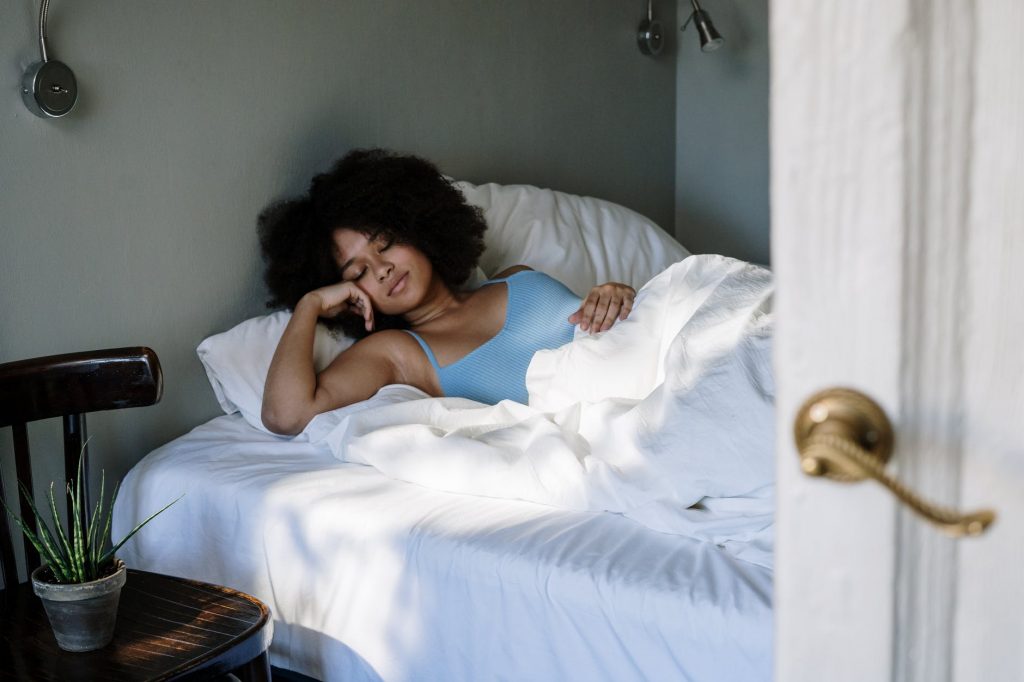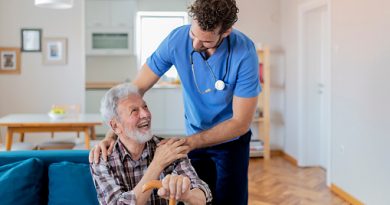THE RIGHT SLEEP RHYTHM
Had too many late nights over the holidays? Here’s how to get your normal sleep rhythm back.
Late nights, unusual wake-up times and lots of food – these can quickly throw off your sleep rhythm. Get it back with these simple tricks. So you are well rested for another round of Hellspin.
WHY DOES IT GET MIXED UP?
Experts explain that the main reason our sleep patterns get so messed up over the holidays is because of the lower amount of natural light available at this time of year. When our eyes perceive little or no light in the morning, melatonin levels stay high and we sleep longer, and since many of us take a vacation from work or education over the holidays, the lack of an alarm clock in the morning combined with the high levels of melatonin in our brain encourages us to sleep in.
The holidays themselves pose additional challenges to our sleep patterns. During the holidays, you may have had a lot of social obligations, which means you may stay up later than usual. And if you didn’t work over the holidays, you could rest in the morning and even take a nap during the day.
This is all very confusing for our circadian rhythm (our internal 24-hour clock). When we start going to bed late and waking up later, we adjust our circadian rhythm to this new bedtime and wake-up time – and that’s before we take into account all the alcohol, chocolate and other delights we indulge in this time of year.
The holidays also mean increased alcohol and caffeine consumption (chocolate, mixed drinks, etc.), both of which have a negative impact on sleep, and experts point out the particularly harmful effects that alcohol consumption can have on sleep:
The aftereffects of heavy alcohol consumption (i.e., a hangover) not only impair sleep, but also cognitive and psychomotor performance the next day. In addition, alcohol can affect sleep at night, even if it was consumed during the day.
HOW TO GET YOUR RHYTHM BACK?
- Get back into the habit of a routine.
When you keep a regular sleep schedule, your body develops a stable circadian rhythm that helps you sleep at the right time at night. If you go to bed early and get up early on weekdays, but stay up late and sleep in on weekends, you’ll cause weekend jet lag, which will make it harder for you to go to bed early on Sunday night so you can get up early again on Monday morning!
2. Increase your level of exercise.
Exercise is not only important for overall health, but it also directly affects your need for “deep sleep” at night. The more you exercise, the more deep sleep you’ll have. Deep sleep helps you feel refreshed when you wake up and contributes to continuity of sleep.
Make sure you exercise during the day and not too close to bedtime, as exercise in the evening can sometimes disrupt sleep due to the release of endorphins and adrenaline.
- stop your caffeine consumption at 2 p.m.
As mentioned earlier, caffeine has an average half-life of five to seven hours. This means that five to seven hours after a cup of coffee, half of the caffeine is still in your body! Caffeine is not only found in tea and coffee, but also in chocolate and soft drinks like cola and energy drinks, even the sugar-free variety. If you have trouble falling asleep, you should have your last cup of caffeine of the day around 2pm.
- digital detox at night
A recent study found that one in five people are kept awake by their cell phones. Make sure you turn off your electronic devices an hour before bed, especially your phone. Electronic devices like your smartphone or laptop emit a bright blue light frequency that our brain interprets as bright daylight. When you look at your screen in the late evening, your eyes are exposed to this blue light, and your circadian rhythm thinks it’s much earlier in the day and tries to stop melatonin production, disrupting sleep. Instead, try reading a book or meditating before bed.
5.reduce your alcohol consumption
You may have noticed that your sleep was poor over the holidays due to increased alcohol consumption. When we drink alcohol, we can fall asleep faster, but the quality of sleep that night is worse and we wake up more often. Therefore, to improve your sleep after the holidays, you should reduce your alcohol consumption.




